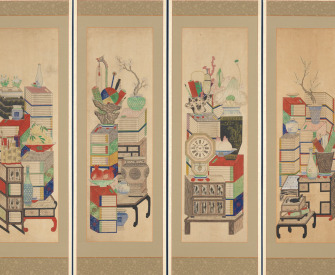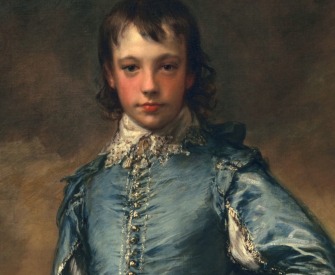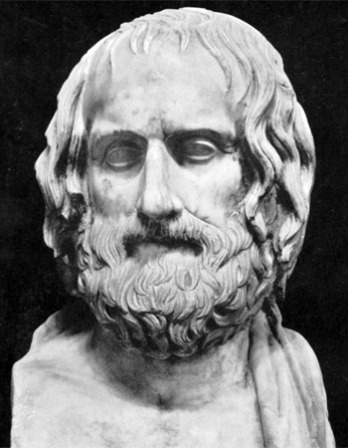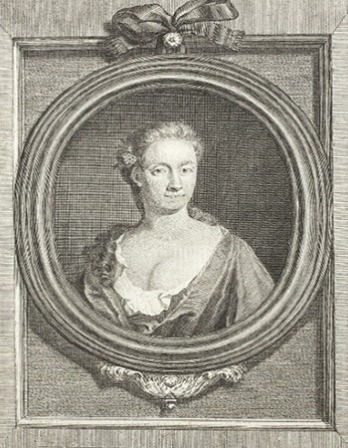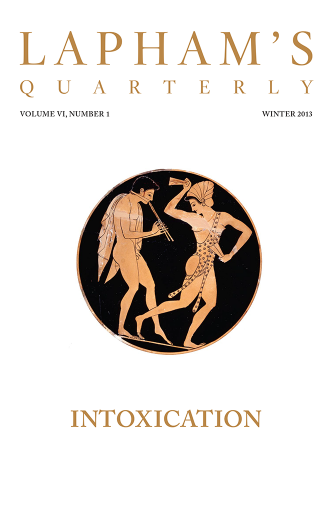Education is a weapon whose effects depend on who holds it in his hands and at whom it is aimed.
—Joseph Stalin, 1934Negative Standard
Henry Adams on Harvard College.
For generation after generation, Adamses and Brookses and Boylstons and Gorhams had gone to Harvard College, and although none of them, as far as known, had ever done any good there, or thought himself the better for it, custom, social ties, convenience, and above all economy kept each generation in the track. Any other education would have required a serious effort, but no one took Harvard College seriously. All went there because their friends went there and the College was their ideal of social self-respect.
Harvard College, as far as it educated at all, was a mild and liberal school which sent young men into the world with all they needed to make respectable citizens and something of what they wanted to make useful ones. Leaders of men it never tried to make. Its ideals were altogether different. The Unitarian clergy had given to the College a character of moderation, balance, judgment, restraint, what the French called mesure: excellent traits which the College attained with singular success so that its graduates could commonly be recognized by the stamp, but such a type of character rarely lent itself to autobiography. Four years of Harvard College, if successful, resulted in an autobiographical blank, a mind on which only a watermark had been stamped.
The stamp, as such things went, was a good one. The chief wonder of education is that it does not ruin everybody concerned in it, teachers and taught. Sometimes in afterlife, Adams debated whether in fact it had not ruined him and most of his companions, but disappointment apart, Harvard College was probably less hurtful than any other university then in existence. It taught little, and that little ill, but it left the mind open, free from bias, ignorant of facts, but docile. The graduate had few strong prejudices. He knew little but his mind remained supple, ready to receive knowledge.
The class of 1858, to which Henry Adams belonged, was a typical collection of young New Englanders, quietly penetrating and aggressively commonplace; free from meannesses, jealousies, intrigues, enthusiasms, and passions; not exceptionally quick; not consciously skeptical; singularly indifferent to display, artifice, florid expression, but not hostile to it when it amused them; distrustful of themselves, but little disposed to trust anyone else; with not much humor of their own, but full of readiness to enjoy the humor of others; negative to a degree that in the long run became positive and triumphant. Not harsh in manners or judgment, rather liberal and open-minded, they were still as a body the most formidable critics one would care to meet in a long life exposed to criticism. They never flattered, seldom praised; free from vanity, they were not intolerant of it; but they were objectiveness itself; their attitude was a law of nature; their judgment beyond appeal, not an act either of intellect or emotion or of will but a sort of gravitation.
This was Harvard College incarnate, but even for Harvard College, the class of 1858 was somewhat extreme. Of unity this band of nearly one hundred young men had no keen sense, but they had equally little energy of repulsion. They were pleasant to live with, and above the average of students—German, French, English, or whatnot—but chiefly because each individual appeared satisfied to stand alone. It seemed a sign of force; yet to stand alone is quite natural when one has no passions, still easier when one has no pains.
If the student got little from his mates, he got little more from his masters. The four years passed at college were, for his purposes, wasted. Harvard College was a good school, but at bottom what the boy disliked most was any school at all. He did not want to be one in a hundred—1 percent of an education. He regarded himself as the only person for whom his education had value, and he wanted the whole of it. He got barely half of an average. Long afterward, when the devious path of life led him back to teach in his turn what no student naturally cared or needed to know, he diverted some dreary hours of faculty meetings by looking up his record in the class lists and found himself graded precisely in the middle. In the one branch he most needed—mathematics—barring the few first scholars, failure was so nearly universal that no attempt at grading could have had value, and whether he stood fortieth or ninetieth must have been an accident or the personal favor of the professor. Here his education failed lamentably. At best he could never have been a mathematician, at worst he would never have cared to be one; but he needed to read mathematics, like any other universal language, and he never reached the alphabet.
Beyond two or three Greek plays, the student got nothing from the ancient languages. Beyond some incoherent theories of free trade and protection, he got little from political economy. He could not afterward remember to have heard the name of Karl Marx mentioned, or the title of Capital. He was equally ignorant of Auguste Comte. These were the two writers of his time who most influenced its thought. The bit of practical teaching he afterward reviewed with most curiosity was the course in chemistry, which taught him a number of theories that befogged his mind for a lifetime. The only teaching that appealed to his imagination was a course of lectures by Louis Agassiz on the glacial period and palaeontology, which had more influence on his curiosity than the rest of the college instruction altogether. The entire work of the four years could have been easily put into the work of any four months in afterlife.
Harvard College was a negative force, and negative forces have value. Slowly it weakened the violent political bias of childhood, not by putting interests in its place, but by mental habits which had no bias at all. It would also have weakened the literary bias if Adams had been capable of finding other amusement, but the climate kept him steady to desultory and useless reading, till he had run through libraries of volumes which he forgot even to their title pages. Rather by instinct than by guidance, he turned to writing, and his professors or tutors occasionally gave his English composition a hesitating approval; but in that branch, as in all the rest, even when he made a long struggle for recognition, he never convinced his teachers that his abilities, at their best, warranted placing him on the rank list, among the first third of his class. Instructors generally reach a fairly accurate gauge of their scholars’ powers. Henry Adams himself held the opinion that his instructors were very nearly right, and when he became a professor in his turn and made mortifying mistakes in ranking his scholars, he still obstinately insisted that on the whole, he was not far wrong. Student or professor, he accepted the negative standard because it was the standard of the school.

Henry Adams
From The Education of Henry Adams. A direct patrilineal descendant of John Adams and John Quincy Adams, Henry was a journalist, novelist, biographer, and historian. His nine-volume History of the United States During the Administrations of Thomas Jefferson and James Madison has been called “the finest historical writing ever done by an American.” He wrote his Education in 1906, died in 1918, and was awarded the Pulitzer Prize posthumously in 1919.
